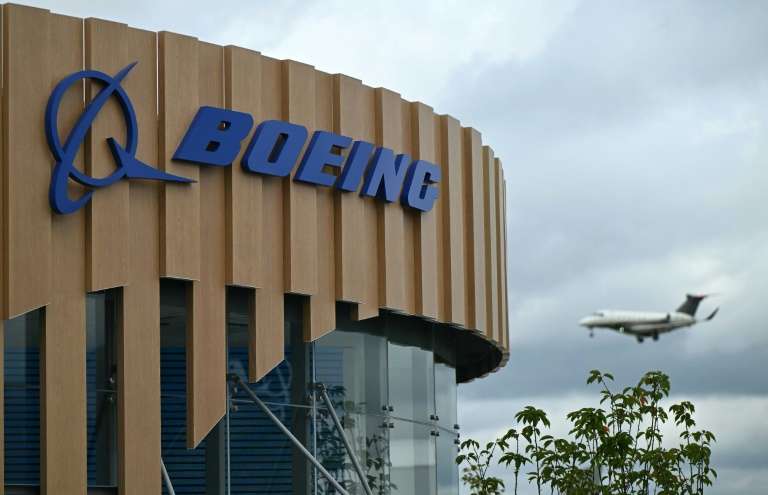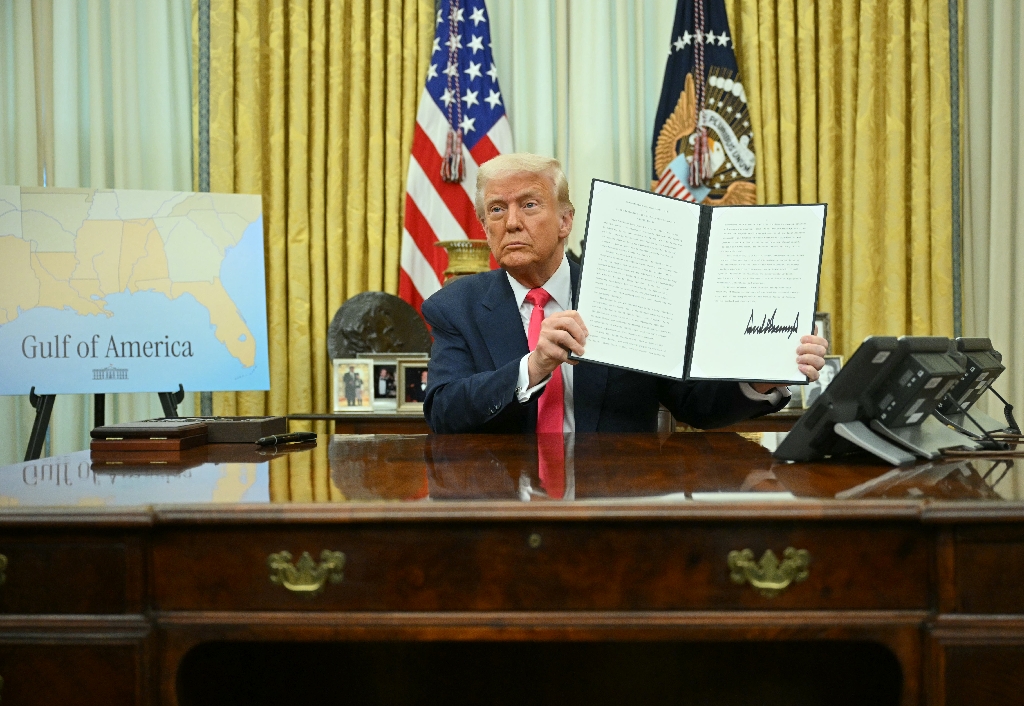Saint-Lô (France) (AFP) – French President Emmanuel Macron on Wednesday hailed the “spirit of sacrifice” of the soldiers who liberated Europe from Nazi occupation, as he prepared to join US counterpart Joe Biden and King Charles III to mark 80 years since the World War II D-Day landings.
The three days of events in France, which will peak Thursday with ceremonies attended by world leaders on the Normandy beaches where the landings took place, are haunted by the new war shadowing Europe as Ukraine battles Russia’s invasion.
Macron will host Biden, King Charles III and Canadian Prime Minister Justin Trudeau, representing the World War II Allied powers, to remember the heroism of the troops who gave their lives in the landings on June 6, 1944 to free Europe from Nazi occupation.
The most honoured guests will be the surviving veterans.
Around 200 are expected, a number that is dwindling every year with most at least in their late 90s and some older than 100.
This may be the final major anniversary where they are present.
“If I could go again, I would go again. I’m glad we sacrificed so that others (could) have a good life,” John Mines, 99, who was among the first wave of soldiers on D-Day, told AFP on the ferry crossing the Channel to the events. “It wasn’t me, they’re all heroes.”
But with Ukrainian President Volodymyr Zelensky joining the Western leaders in Normandy, the ceremonies will provide a hugely symbolic backdrop to talks on how Ukraine can gain back ground after Russian advances.
Strikingly, no Russian official has been invited, underlining Moscow’s pariah status in the West after the invasion of Ukraine despite the massive Soviet contribution to defeating Nazism in World War II.
– ‘Cherish those who served’ –
Kicking off events with a ceremony in the neighbouring Brittany region to remember French resistance fighters who landed in occupied France as D-Day got under way, Macron said he was sure today’s youth was “ready for the same spirit of sacrifice as its elders”.
“As the dangers mount…you remind us that we are ready to consent to the same sacrifices to defend what is most dear to us,” Macron said.
Committed to remembering all aspects of World War II, Macron later visited the Normandy town of Saint-Lo which was virtually flattened by Allied bombings during the night of 6-7 June leaving some 400 dead.
“We must bring this memory into the light with sadness and clarity,” he said.
Between 50,000 and 70,000 civilians are believed to have been killed in France by Allied bombardment. King Charles, whose visit to Normandy on Thursday will be his first overseas trip since his cancer diagnosis, led a day of commemorations in the English port city of Portsmouth, a key hub as Allied troops prepared for D-Day.
“As we give thanks for all those who gave so much to win the victory whose fruits we still enjoy to this day, let us once again commit ourselves always to remember, cherish and honour those who served that day,” he said.
– ‘Deepen Ukraine support’ –
Biden, who touched down in Paris earlier Wednesday, was also expected to promote the United States as a defender of democracy and international alliances, contrasting himself against election rival Donald Trump during a state visit that will last until Sunday.
US National Security Advisor Jake Sullivan told reporters travelling to Paris that Biden would tell Zelensky “how we can continue and deepen our support for Ukraine”.
Macron has already sought to break taboos by refusing to rule out sending troops to Ukraine, a position that unsettled some EU allies.
But there have been shifts in recent weeks, with the West showing readiness to allow Ukraine to use Western-provided weapons to strike targets in Russia, and France pushing for the deployment of European military instructors in Ukraine.
The landings by Allied forces, backed by airborne operations that parachuted troops directly onto occupied soil, were the biggest naval operation ever in terms of the number of ships deployed and the troops involved.
By the end of what became known as “the longest day”, 156,000 Allied troops with 20,000 vehicles had landed in Nazi-occupied northern France despite facing a hail of bullets, artillery and aircraft fire.
The landings marked the beginning of the end of the Nazi occupation of Western Europe, though months of intense and bloody fighting still lay ahead before victory over the regime of Adolf Hitler.
fff-vl-aue-sjw/as/imm
© 2024 AFP




